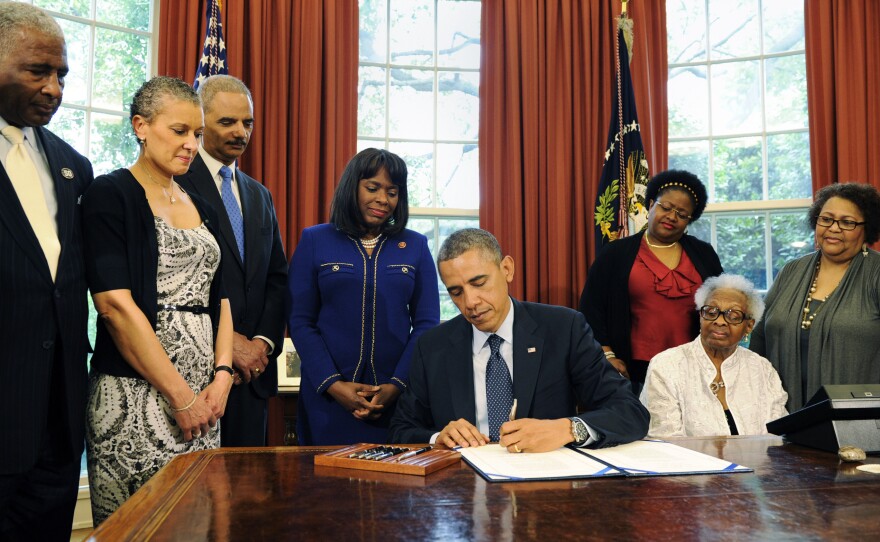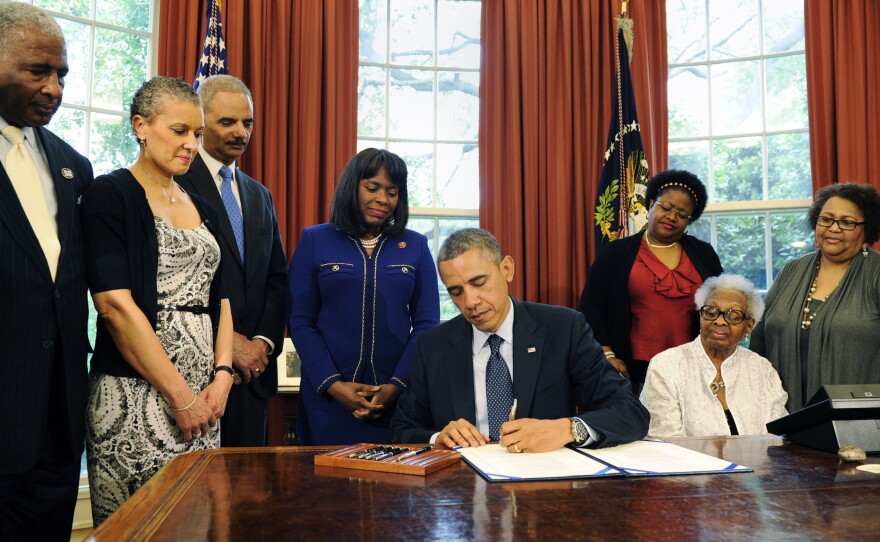
They were just little girls when they were killed in 1963, in what came to be known as the 16th Street Baptist Church Bombing. And now Addie Mae Collins, Denise McNair, Carole Robertson, and Cynthia Wesley have been awarded the Congressional Gold Medal, nearly 50 years after the attack in Birmingham, Ala.
President Obama signed the legislation Friday to award the girls -- all of them 14, except for McNair, who was 11 -- with the highest honor Congress can bestow upon a civilian.
The girls' deaths, from dynamite hidden under a bathroom by white supremacists, helped propel the 1964 Civil Rights Act through Congress. They were eulogized by the Rev. Martin Luther King Jr., who famously asked, "What murdered these little girls?" -- a sentiment echoed in director Spike Lee's film about the incident, 4 Little Girls.
The prosecution of those responsible stretched out over decades. The last living defendant, former Ku Klux Klansman Thomas Blanton Jr., was convicted of four counts of murder in 2001.
In recent weeks, both the House and Senate passed the bill honoring the girls with unanimous votes. One of the bill's sponsors was Rep. Terri Sewell of Alabama, who attended the signing of the legislation in the Oval Office on Friday.
"It's a very proud moment for me, both as an American and as an Alabamian," Sewell tells WBUR's Meghna Chakrabarti on Friday's Here & Now. "I grew up in Selma, Ala., and it was because of the sacrifices that were made by so many, including the families of these four little girls, that I get an opportunity to walk the halls of Congress as the first African-American woman from Alabama."
As Melanie Peeples reported for NPR back in 2003, the bombing is part of a violent legacy with which Birmingham is still coping. And as Tanya Ott reported earlier this year, bombing survivor Sarah Collins Rudolph, Addie Mae's sister, continues to struggle with the lingering and painful effects of the attack.
Copyright 2013 NPR. To see more, visit www.npr.org.






